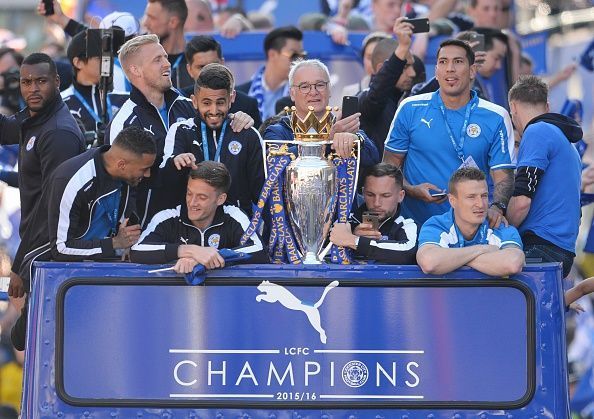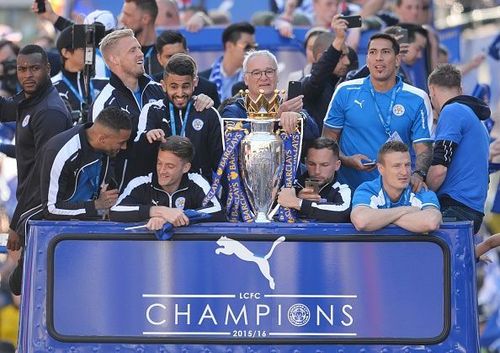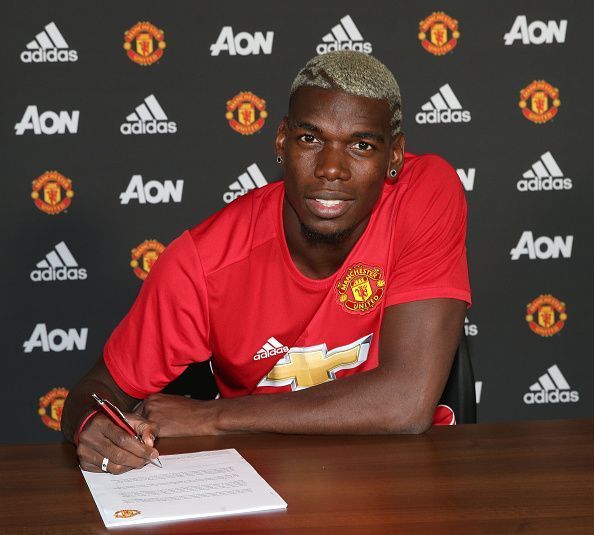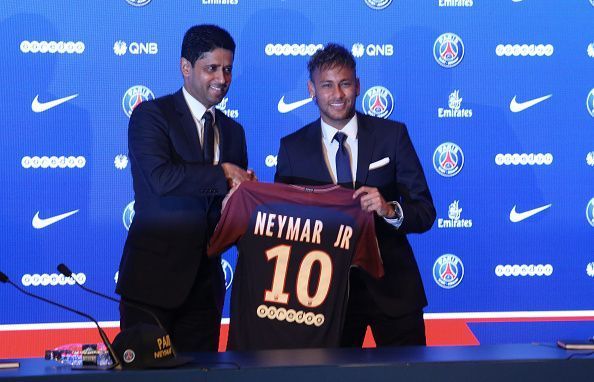
Why miracles like Leicester City may no longer be possible

2nd May 2016, Chelsea vs Tottenham at Stamford Bridge. Possibly the most important match in Tottenham's history. Spurs needed a win to stay in the title race. Harry Kane and Heung-min Son had scored to give them a 2-1 lead.
Chelsea had already gone down in the record books as the worst title defenders ever. But with seven minutes remaining on the clock, they displayed more passion and aggression in the dying moments of the game than they had in the entire season. Eden Hazard picked up the ball at the halfway line, completed a dribble before passing it to Diego Costa who played the ball back to the Belgian. Hazard then curled it home from the edge of the box, doing what he does best.
The goal sent an entire city into euphoria. The footballing world descended into an astonished silence. As the finality of what had just occurred seeped in, fans around the world were still struggling to comprehend the most incredible football story ever witnessed.
Chelsea fans were chanting the name of their former manager. The manager who had led a little-known city with a population of just under 350,000 to their first league title in their 133-year history. The reigning champions of England passed on their trophy to the newly crowned ones, as Peter Drury described it, "on a night of perfect succession".
Leicester reminded us on that day why we all love football. After all, they were just another team that had won promotion to the first division the previous year, just another team that managed to survive their first season with England's elite by the finest of margins.
They were a group of players and a coach with nothing in common except the love for the game. None of them were superstars. Almost no one belonging to the new generation of football fans would have known who Claudio Ranieri was. At the beginning of that season, very few knew who Riyad Mahrez, Jamie Vardy and N'Golo Kante were.
We all have our allegiances, to players, to managers, or to clubs. But on that night, Leicester was the bond that united football fans all over the globe. That's what football does -- every now and then it gives you an underdog success story that proves how unpredictable and heartwarming this sport can be.
As an 18-year-old, Jamie Vardy was putting in 12-hour shifts at a carbon-fibre splint factory. A decade later, he was ruling England and terrorising the best defenders in the country.
To say that there is an imbalance in every sport would be an understatement. The gulf in class between teams that are financially sound and those that aren't is painfully apparent both on and off the pitch.

Some of the biggest brand names in football -- Manchester United, Barcelona, Real Madrid, Chelsea and so on -- are financial giants. Their superiority is reflected not just on the pitch, but also off of it, in their extensive fanbases and ludicrous marketing campaigns.
Leicester's success showed that these weren't necessary for a club to win trophies. The only thing that drove them was their passion and the unconditional support of their fans, however small in number they might have been.
As larger and larger sums of money come into play, the gap grows wider. If it was previously difficult for underdogs to perform at the same level as economic giants, it is soon going to be impossible.
And Paris Saint-Germain might very well be responsible for this shift. Neymar's transfer worth €222 million more than doubled the record previously held by Paul Pogba, making it the first time in 75 years for that to have happened. Pogba's record was broken three times over in the space of one transfer window, if you include Kylian Mbappe's inevitable move to PSG next year.
It isn't, however, one single development that has led to the situation we find ourselves in. It is a culmination of events, of world record transfers, higher revenues, bigger sponsorship deals and TV rights that have isolated the uber-elite from the working class teams.
In fact, this isolation was close to being physically manifested in the form of a European Super League. There were rumours of top clubs from Europe's top five leagues breaking away from their domestic tournaments to form a separate, cash-rich league of their own. This idea was so ridiculous that some fans believed it to be more than just a rumour.
The Premier League, so far, has been the most successful in equal distribution of revenue. This has led to the league being the most competitive in several years, but unfortunately, even that is restricted to the top six teams. It is still a much better situation than other European leagues which have already been transformed into two-horse races.
The problem here is that player prices have inflated to obscene amounts over the past couple of years. Average players at the start of the millennium went for a few million pounds. Now they cost upwards of £40 million.
To put this into context, Cristiano Ronaldo joined Manchester United as an 18-year-old prodigy for £12 million in the summer of 2003. He went on to become the most iconic player of his generation, winning three Premier League titles, one FA Cup, and one Champions League, before earning himself a world record move to Real Madrid. He has since gone on to become their all-time record goalscorer.

Real Madrid recently signed another budding young teenager, Vinicius Jr., who plays as a winger for Flamengo. He signed a contract with Madrid as a 16-year old that will come into effect once he turns 18. The Spanish giants reportedly paid €38 million for him.
Irrespective of whether he goes on to fulfil his potential, it is a ridiculous amount of money for a 16-year-old who had one good season. There are several more recent examples of clubs paying way more than what a player was actually worth.
Unfortunately, the financial strength of the smaller clubs have not increased proportionally with the inflation in player prices. Clubs like Leicester thrive on buying lesser-known players from Europe's lower leagues at bargain prices, and later selling them on for substantial profits once they suceed. This is a major source of revenue for clubs that do not get regular infusions of cash from investors.
The trend in player prices only seems to be increasing with every transfer window, and with it, the chances of witnessing another story like Leicester decreases.
A lot will depend on whether the insanity of this summer window was a one-off event or a sign of things to come. The best we can hope for right now is that it was the former, because after all, PSG were involved in two of the €100 million plus transfers. Barcelona's signing of Dembele was simply a usage of their Neymar funds. All the big transfers were invariably linked to each other.
If that was the case, then there is a possibility that we will revert back to normalcy in January. But even now, some incredible figures are being quoted in relation to upcoming rumoured transfers.
If any of them materialise in the winter or next summer, it might just be an indication of how things will shape up, at least for the foreseeable future, and the gap between the giants and the minnows will only grow wider. Football will no longer have underdog success stories, and future generations will look back at Leicester as an anomaly, a blip on the radar, rather than the incredible story of passion and determination that it was.